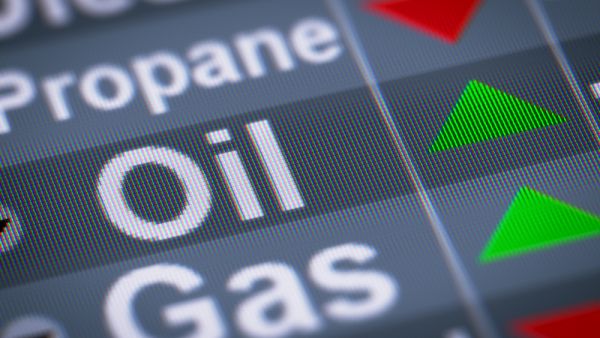Oil prices rose and global stock markets fell on Wednesday as tensions in the Middle East threatened to boil over after Iran launched missile strikes at US forces in Iraq in retaliation for the killing of General Qassem Soleimani.
Brent crude futures, the benchmark for international oils, spiked more than $3 per barrel in London before retreating, as stock markets in London and Frankfurt opened lower before recovering some of its losses.
'Investors appear to be pricing for an all-out war,' said Jingyi Pan of IG in a report.
The Pentagon said Iran fired more than a dozen missiles at bases in Iraq used by US troops.
President Donald Trump tweeted 'All is well!' and that casualty and damage assessments were ongoing, adding 'So far, so good!'
Iran's foreign minister described the missile firings as 'proportionate measures in self-defense.'
Financial markets have been on edge about possible U.-Iranian conflict and disruption of oil supplies since last week's killing of Soleimani by a US drone in Baghdad.
Brent crude was up 78 cents at $69.05. At the start of trading, it spiked $3.48 to $71.75 before retreating.
Benchmark US crude was up 55 cents to $63.25 per barrel in electronic trading on the New York Mercantile Exchange, having earlier jumped $2.95 to $65.65 before settling British shares slipped following the missile strikes, driving investors away from risky assets and into safe-haven holdings.
The FTSE 100 fell 0.5 percent, down for the third straight session, following news that Iran had hit back in response to the killing of a top Iranian commander by the United States last week.
The FTSE 250 tumbled nearly 1 percent as a steep fall in payment processing firm Finablr and stock downgrades by BofA Global Research exacerbated the broader gloom.
'The big question is whether President Trump follows through on his promise to hit back at Iran if they did retaliate,' CMC Markets analyst Michael Hewson said back.
'While this might seem complacent in terms of some overall valuations, it's not immediately clear what else investors can do apart from hedging their stock market exposure, by moving money into gold as well as other havens.'
Saudi Aramco shares fell to a new low, but Gulf debt markets were fairly stable, as some had feared stronger retaliation from Iran.
Saudi Aramco opened at 34 riyals ($9.06), its lowest since it began trading on December 11, putting the market value of the company at around $1.8 billion, down from a peak of $2.06 trillion on December 12.
Aramco´s shares fell in the final couple of weeks of 2019 because reality kicked in among investors, but the recent weakness was caused by geopolitical tensions, said Jason Tuvey, a senior emerging markets economist at Capital Economics.
Aramco shares are down almost 12% from a high of 38.70 riyals on December 12, but still above the IPO price of 32 riyals, which valued the company at $1.7 trillion.
This article has been adapted from its original source.








